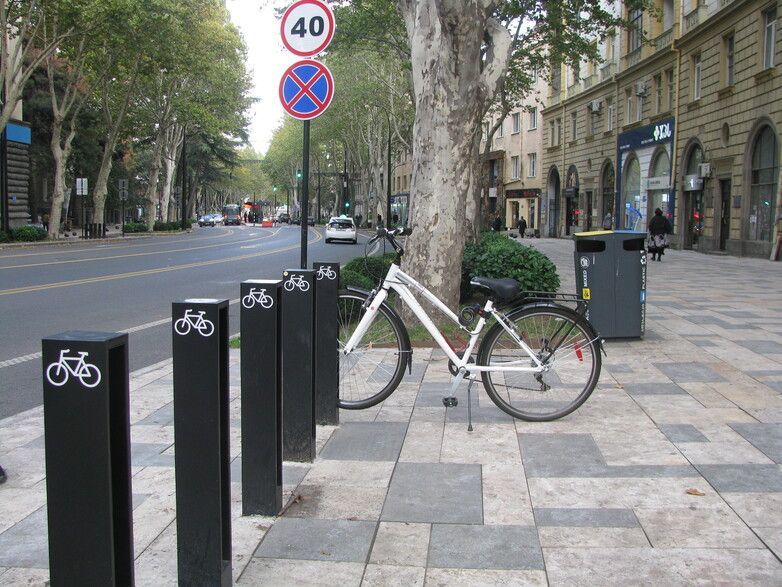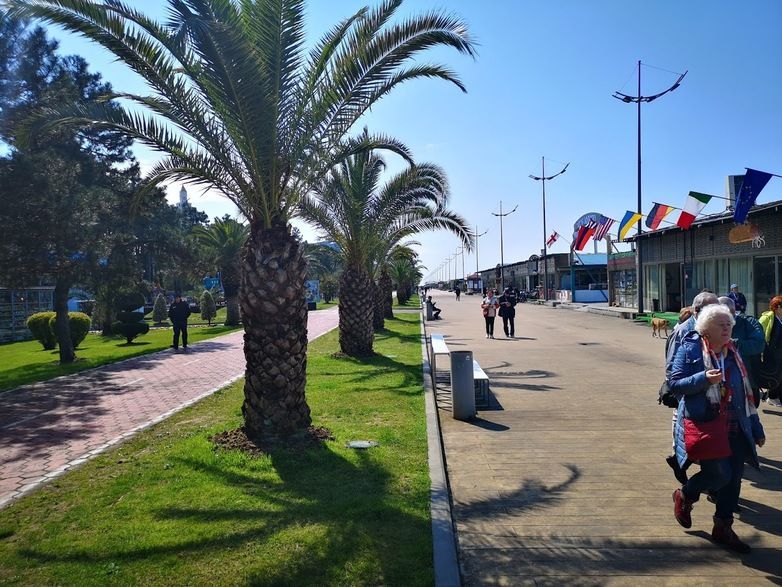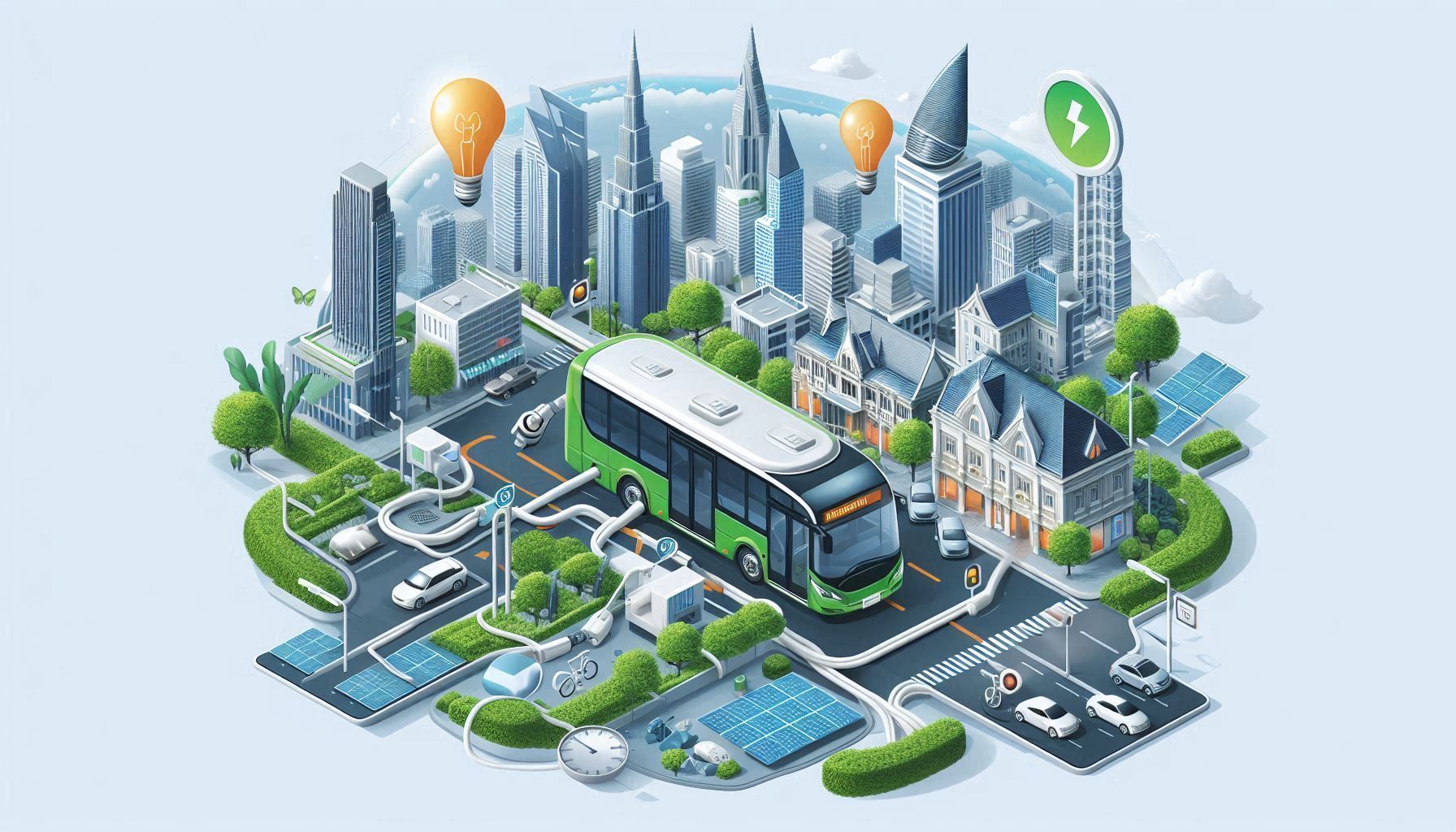Developing sustainable urban mobility in the South Caucasus
Of course, replacing every car with a (shared) bicycle overnight is not a
realistic scenario
Developing sustainable urban mobility in the South Caucasus
Sustainable Urban Mobility in the South Caucasus (Mobility4Cities) - TUMI
Project description
Title: Sustainable Urban Mobility in the South Caucasus (Mobility4Cities) - TUMI
Commissioned by: German Federal Ministry for Economic Cooperation and Development (BMZ)
Country: Armenia, Azerbaijan, Georgia
Lead excuting agency: Ministry of Environmental Protection and Agriculture; of Georgia (MEPA); Tbilisi City Hall; Batumi City Hall
Overall term: 2020 to 2023

Context
The transport sector is one of the largest sources of greenhouse gas emissions in the South Caucasus (Georgia, for example, is responsible for 33 per cent of energy-related emissions). Current projections show that transport-related emissions will double by 2030. In addition to the impact on the global climate, the transport sector contributes towards a reduced quality of life in the cities because of its emission of air pollutants. Another negative effect is also economic damage caused by congestion, accidents and by diseases that result from air and noise pollution. There is a high level of dissatisfaction among the population with the current traffic conditions, which include inadequate quality, a poor safety record, a lack of accessibility to and insufficient coverage of public transport.
Overall term: 2020 to 2023
Objective
City administrations in the South Caucasus are gradually implementing a strategy to design and further develop their urban transport systems as part of a programme of participatory, sustainable and integrated urban development.
Approach
Sustainable urban mobility measures in Batumi and Tbilisi
In the spirit of good governance and capacity development, Mobility4Cities works with local partners in Tbilisi and Batumi to improve urban mobility, mitigate greenhouse gas emissions and enhance public accessibility. The programme advises the cities in planning and implementing sustainable urban mobility measures. For example, Tbilisi is developing a traffic concept for a sustainable urban mobility corridor and planning to introduce Intelligent Transport Systems (ITS), such as a coordinated traffic-light system. Cycling masterplans underline the programme’s ambitions to go emphasise the importance of non-motorised mobility.

Political framework for urban mobility
Recommendations to improve the national framework for urban mobility are being developed in cooperation with the corresponding Georgian institutions. In accordance with the needs of the partner ministry MEPA, this activity includes processes such as developing recommendations to include urban mobility and its contribution towards mitigating climate change. This is in line with the upcoming implementation of the Climate Action Plan of Georgia. In addition, a multi-level governance dialogue is being launched to promote the mainstreaming of climate-friendly urban mobility at national and local governmental levels.

Capacity development for urban mobility
Creating a sustainable and connected city requires more than just developing and implementing good urban mobility measures. These also need to be evaluated, refined, and further enhanced in the long term. Mobility4Cities supports the first academic programme to train future Georgian transport experts. It established a cooperation between the Technical University Dresden and the Georgian Technical University. It aims to provide studies in urban mobility patterns in Georgia and new urban-mobility curricula with a lecture series on urban mobility as the first step.
Mobility4Cities also supports capacity-building measures in city administrations. Transport companies are responsible for the smooth operation of public transport in cities and thus play a key role in modernising urban mobility along sustainability principles. Mobility4Cities organises professional exchanges that bring together Georgian and international experts. A recent peer-to-peer session in Tbilisi covered management systems, public transport policy as well as strategy, marketing and campaigning.
Regional exchange
Making use of this output, national and local institutions from the South Caucasus exchange information about experiences and best practices in the field of urban mobility in regional conferences and workshops on urban mobility. They also benefit from international expertise, study trips and other activities that will be implemented as part of the exchange process




